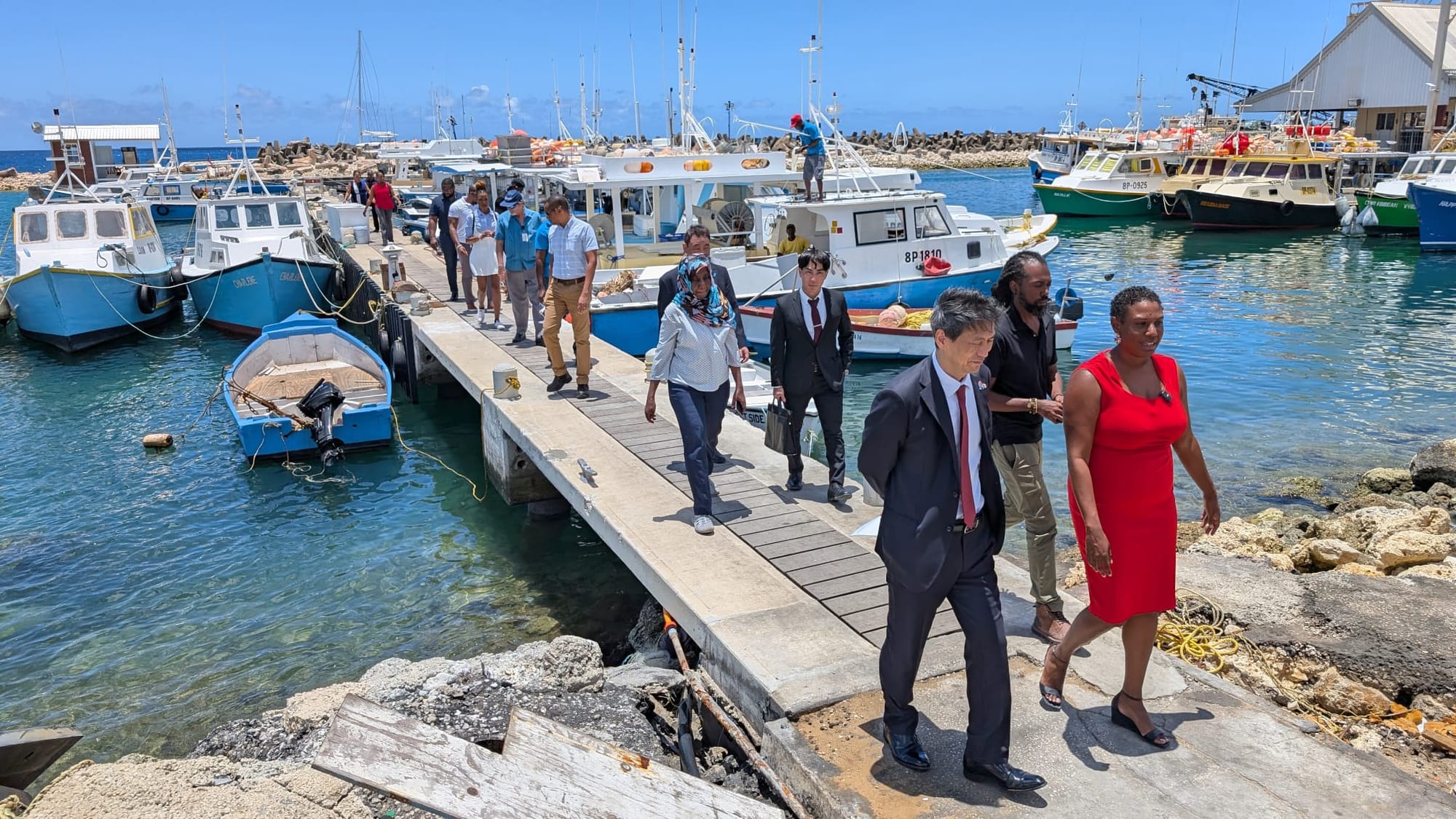The aftermath of Hurricane Beryl on the 1st of July 2024 saw heavy losses to Barbados' coastal infrastructure. The fishing industry was no exception to its impacts, as the Bridgetown Fisheries Complex's (BFC) breakwater, docks, jetties, and the boats that it housed at the time of the event all suffered extensive damage. However, numerous efforts are being made to help in its recovery and to build its resilience in the face of a rapidly changing climate.
Climate change is significantly disrupting fisheries and aquaculture across the globe. Caribbean fisherfolk are on the frontline in the battle against climate change, fighting to maintain their catches, their income and their livelihoods. At stake is our food security, our fishing heritage, the well-being of coastal communities and an important contribution to the emerging blue economy.
Negative impacts of climate change are already evident in the Caribbean. Some of these impacts include damage to critical fish habitats; increasing frequency of high intensity storms; increased sea level, and sargassum influxes. These are disrupting fishing operations, fish landings and fisherfolk livelihoods. Adaptation measures will be required at local, national and regional levels including the use of climate smart technologies, improved fish value chains, access to affordable insurance, mainstream climate change into, fisheries policy and management. The path to transformative change and recovery of the sector is ongoing with climate resilience built in at every stage.
As such, the Government and People of Japan, the United Nations Development Programme (UNDP), and the Ministry of Environment and National Beautification, Green and Blue Economy, in conjunction with numerous other partners, are collaborating on the Barbados Coastal Fisheries Resilience Project, which was launched on the 14th of April 2025.
Through the provision of $2.93 Million USD from the Government and People of Japan, and implemented by the UNDP, this project seeks to reinstate and increase the resilience of select infrastructure and assets in the sector by procuring a Marine Travel Lift capable of lifting 54 ton vessels for the Bridgetown Fisheries Complex, installing Starlink Communications Equipment and System to support on 100 vessels to support rescue and the flow of operations, installing ice machines as well as strengthen disaster resilience knowledge and sustainable practices by providing training in disaster-resistant boat-building, preparedness drills and simulations in various disaster scenarios and building the capacity of the Barbados National Union of Fisherfolk Organisation (BARNUFO) through the supply of office equipment and other digital technologies.
These initiatives will essentially support sustainable improvements in disaster resilience for Barbados' fishing community, which is key as global warming quickly increases the Earth's temperatures, and induces more intense weather systems at a higher frequency.
During the launch, the importance of the fisheries sector for food security, economic stability, and the livelihoods of coastal communities in Barbados was stressed, and this project is expected to make strategic contributions to wider recovery and resilience building in the fisheries sector, support the resumption of livelihoods for those affected by Hurricane Beryl, and to increase the capacity of the fishing community for disaster preparedness and resilience.
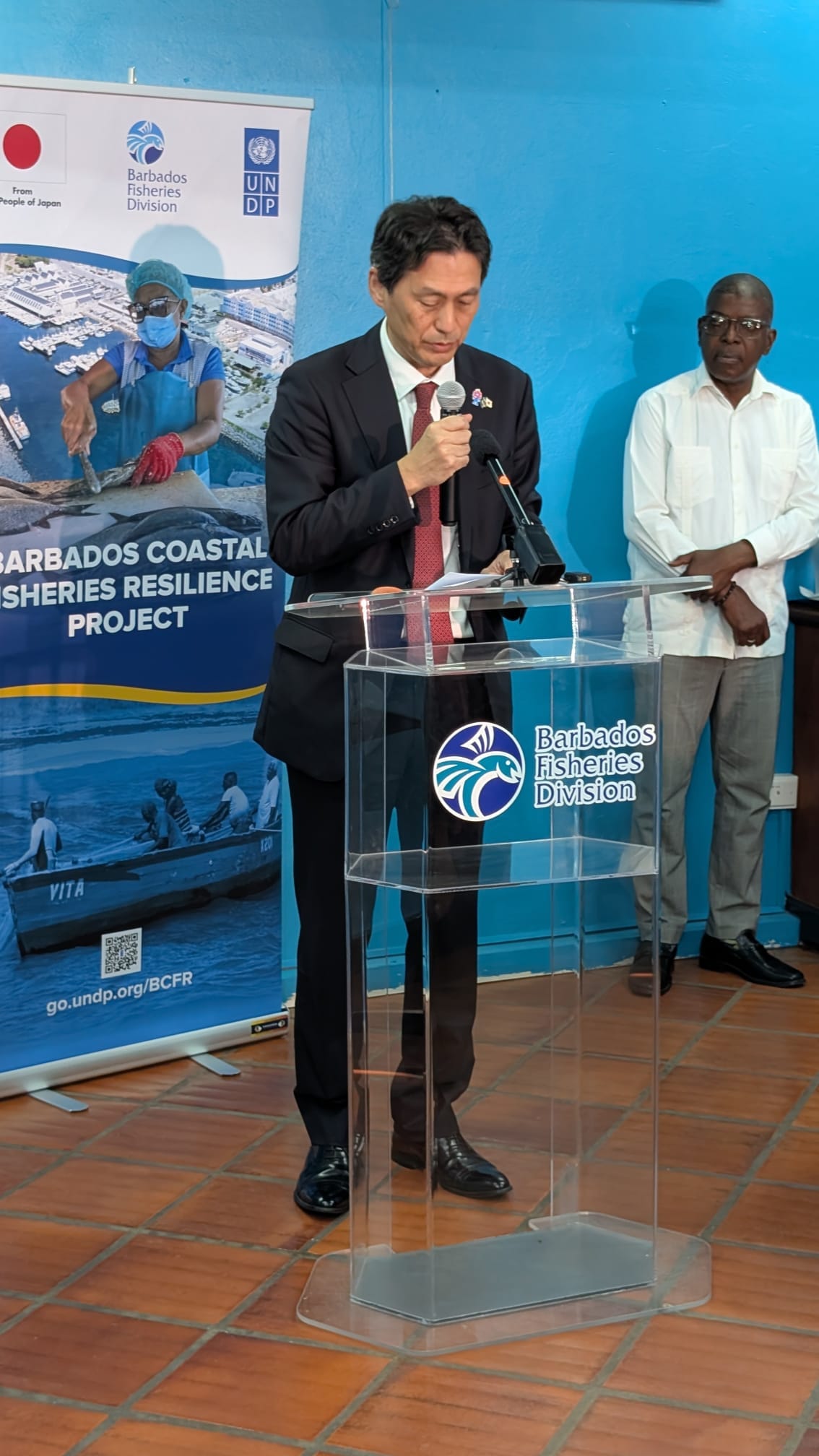
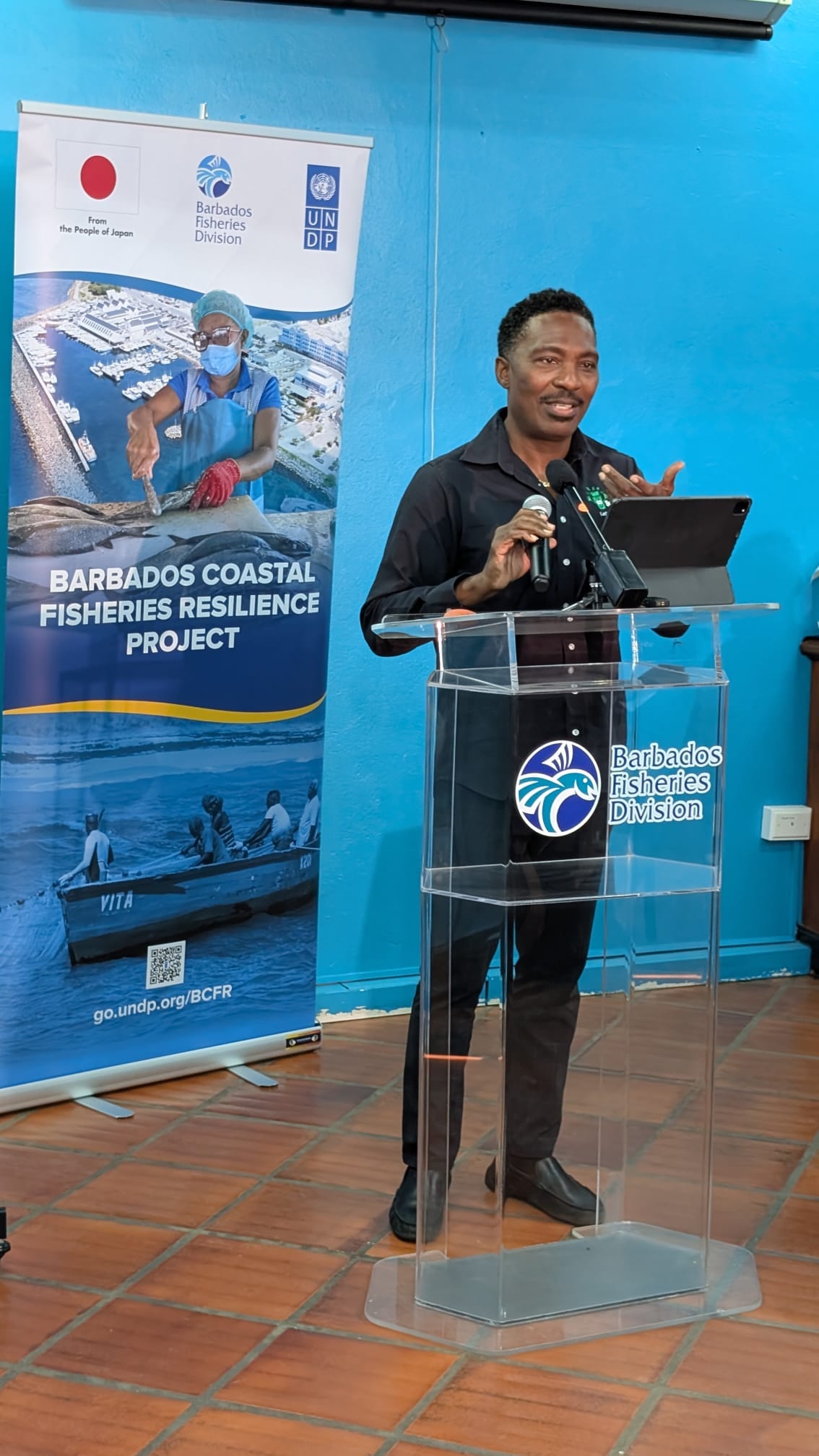
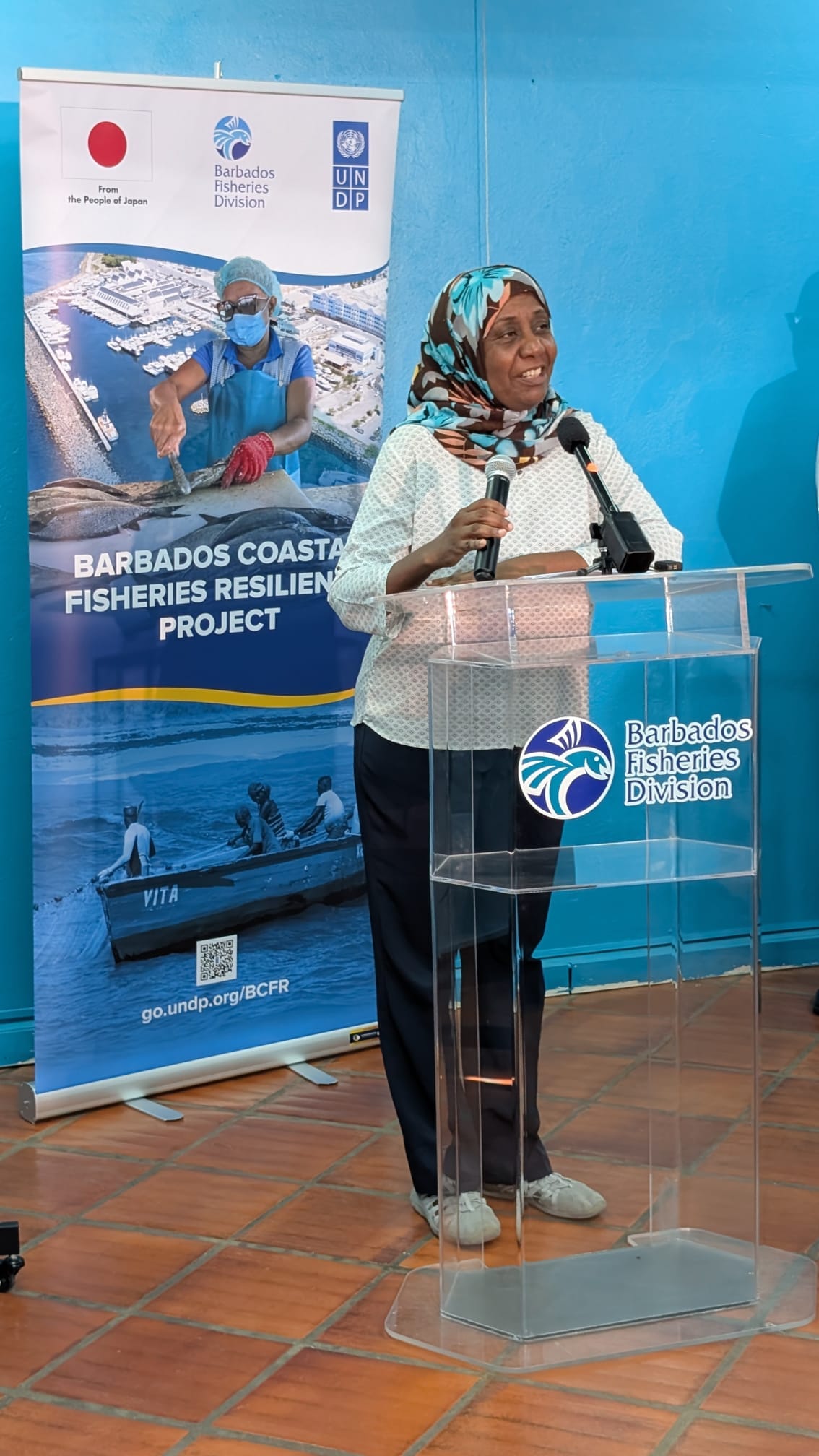
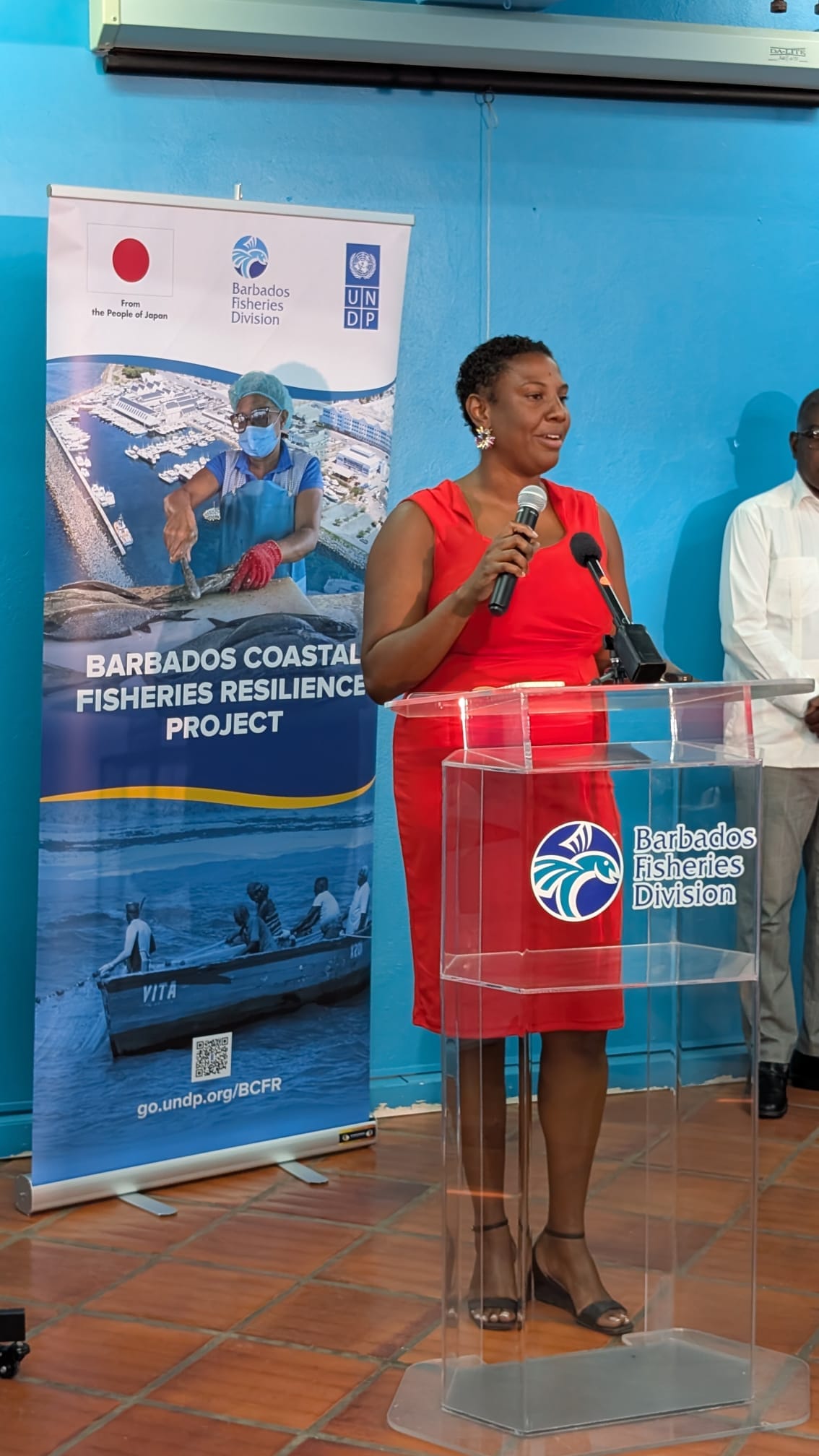
Japan’s Ambassador to Barbados, H.E. Misayaka Yusuke (top left), the Honorable Adrian Forde, Minister of Environment and National Beautification, Green and Blue Economy (top right), UNDP Resident Representative, Ms. Limya Eltayeb (bottom right), and Chief Fisheries Officer, Dr. Shelly-Ann Cox as they make their remarks during the launch of the project. Photo credits: Adriel Jackman
The Barbados Coastal Fisheries Resilience Project underscores the commitment of UNDP and the Government of Japan to building climate-resilient and sustainable communities in Small Island Developing States. It complements the Government of Barbados’ broader Fisheries Recovery Plan, as well as recovery efforts being led by other international partners.
